AI Ghibli Images: Whimsy Meets Privacy Risks
 YuvaSec
YuvaSec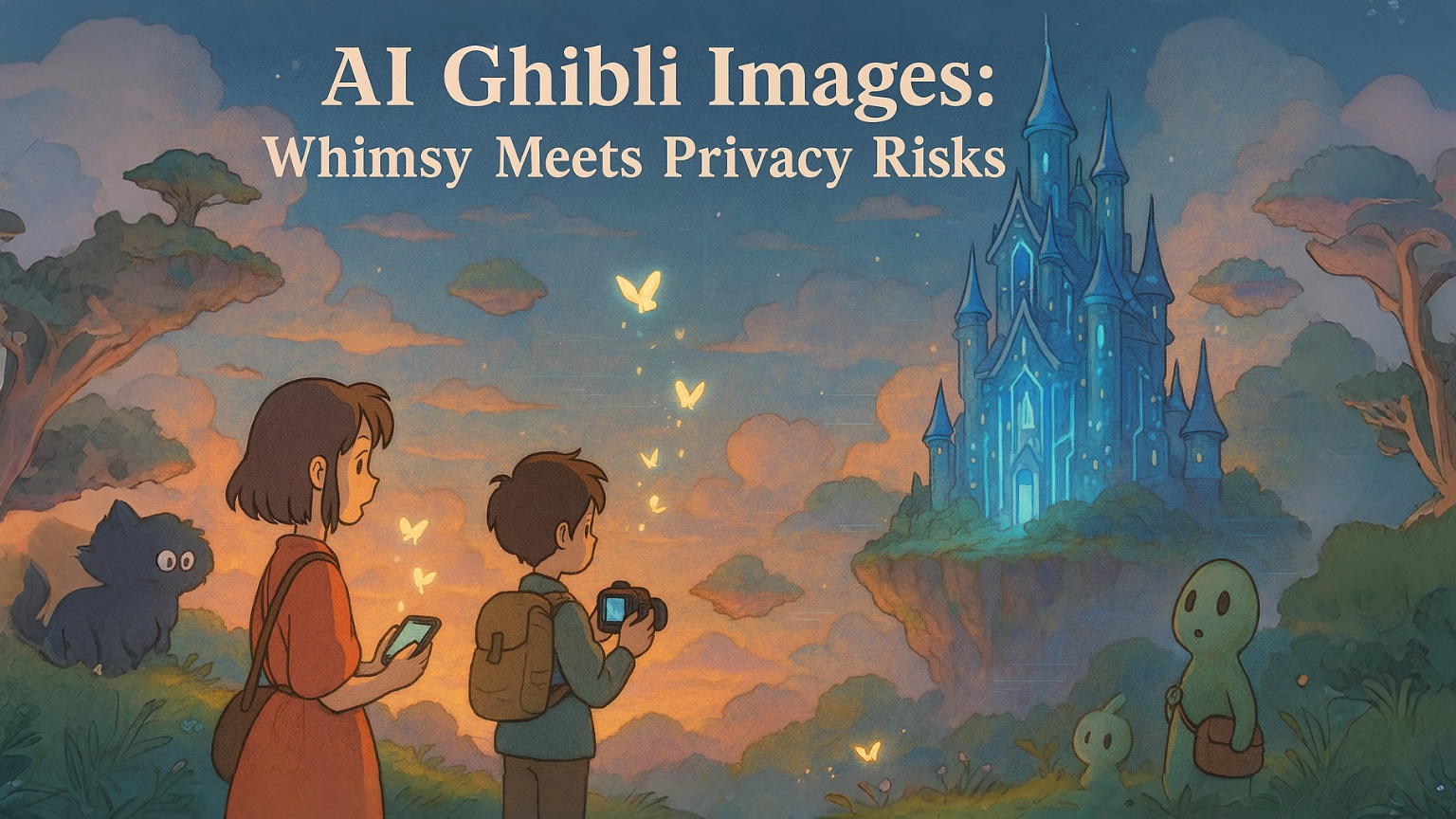
Introduction
"What if your childhood photo could be turned into a Studio Ghibli scene?"
That question lit up the internet in March 2025 when OpenAI’s ChatGPT introduced a feature to generate images in the iconic Ghibli style. People everywhere turned personal pictures into charming, anime-inspired art—but beneath the beauty lies a darker truth.
This article explores the invisible threat of privacy risks by AI-generated art trends, especially when conducted in uploading of personal information. As we embrace these technologies for their charm, we must also confront the problem of how they handle our personal details.
Thesis: While AI Ghibli artwork is graphically appealing, it also has serious privacy concerns, from abuse of data to identity theft, and they warrant accountability from both users and developers.
The Viral Rise of Ghibli-Style AI Art
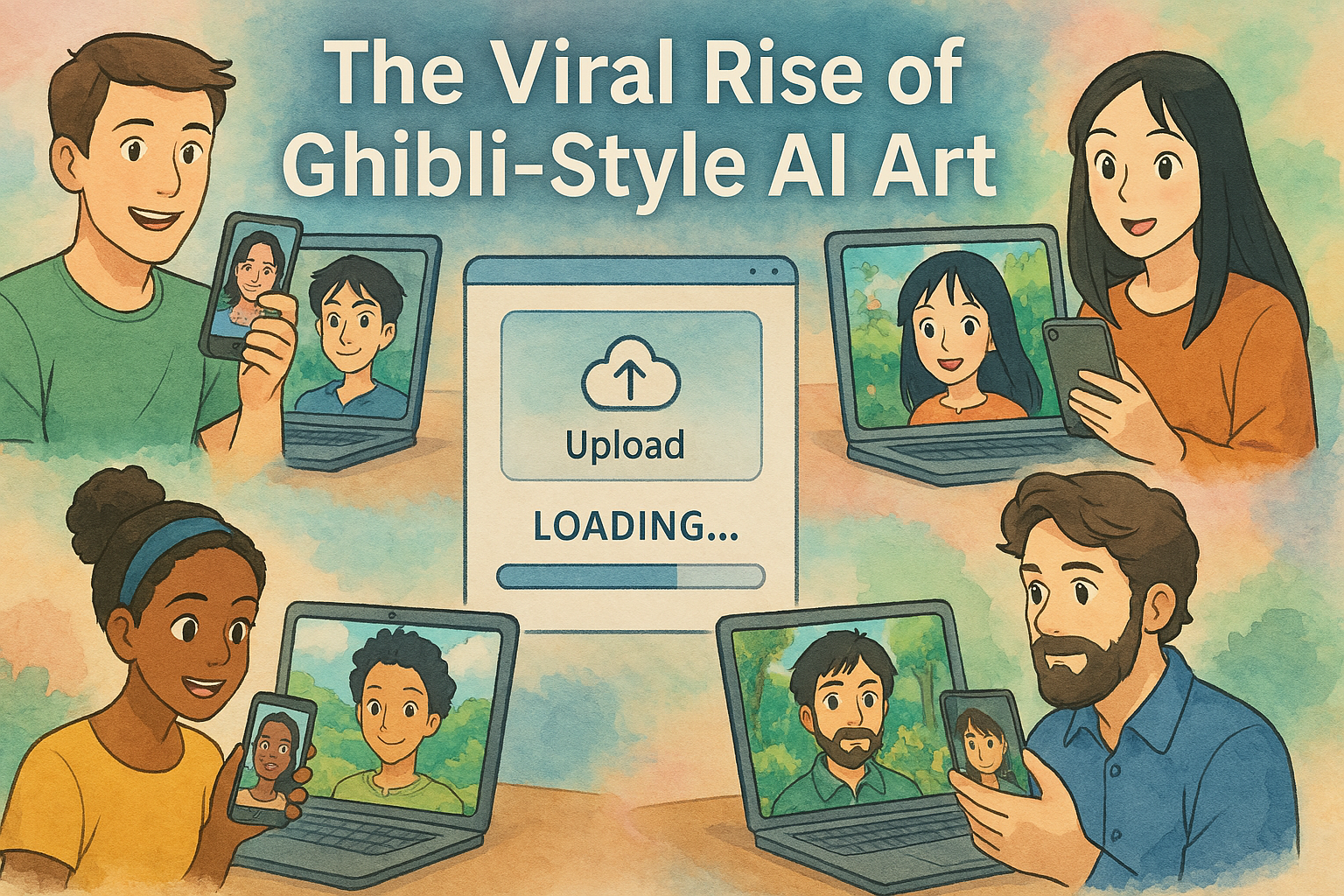
The Allure and the Load
OpenAI’s GPT-4o-powered image generator transformed personal photos into Ghibli-like masterpieces. Its popularity surged so rapidly that CEO Sam Altman urged users to slow down to reduce server load.
Hook: Easy access, stunning visuals, zero cost.
Reality: Mass uploading of personal data into opaque systems.
Copyright Chaos & Creative Tensions
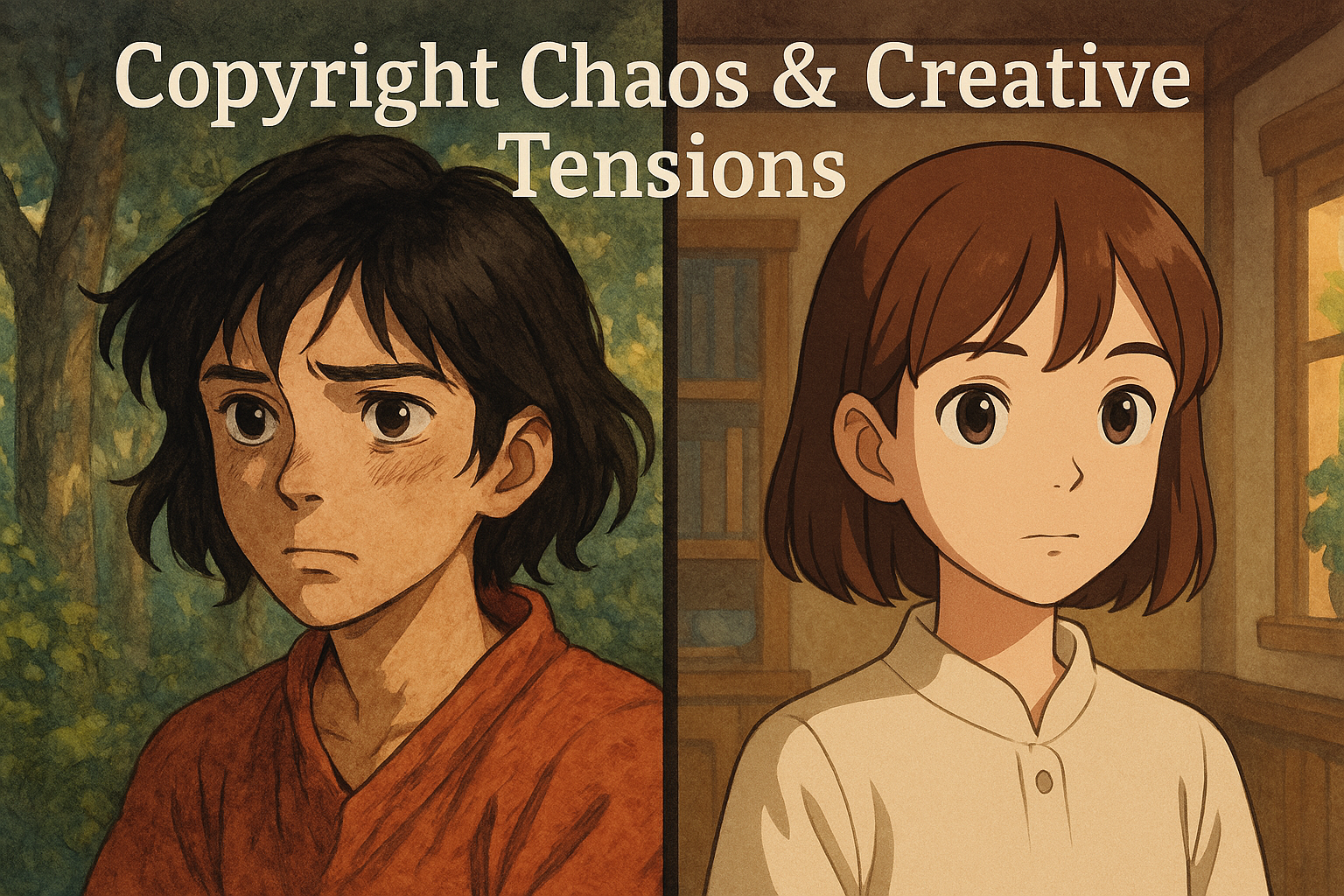
Can AI Steal a Style?
The ability of AI to mimic Ghibli’s aesthetic raises legal and ethical questions. Creators fear job loss as AI automates style replication.
Artists worry about the erosion of creative industries.
Graphic designers and illustrators face job insecurity.
Hayao Miyazaki called AI art an “affront to life,” arguing it lacks emotional depth.
Privacy Risks: What You're Really Uploading
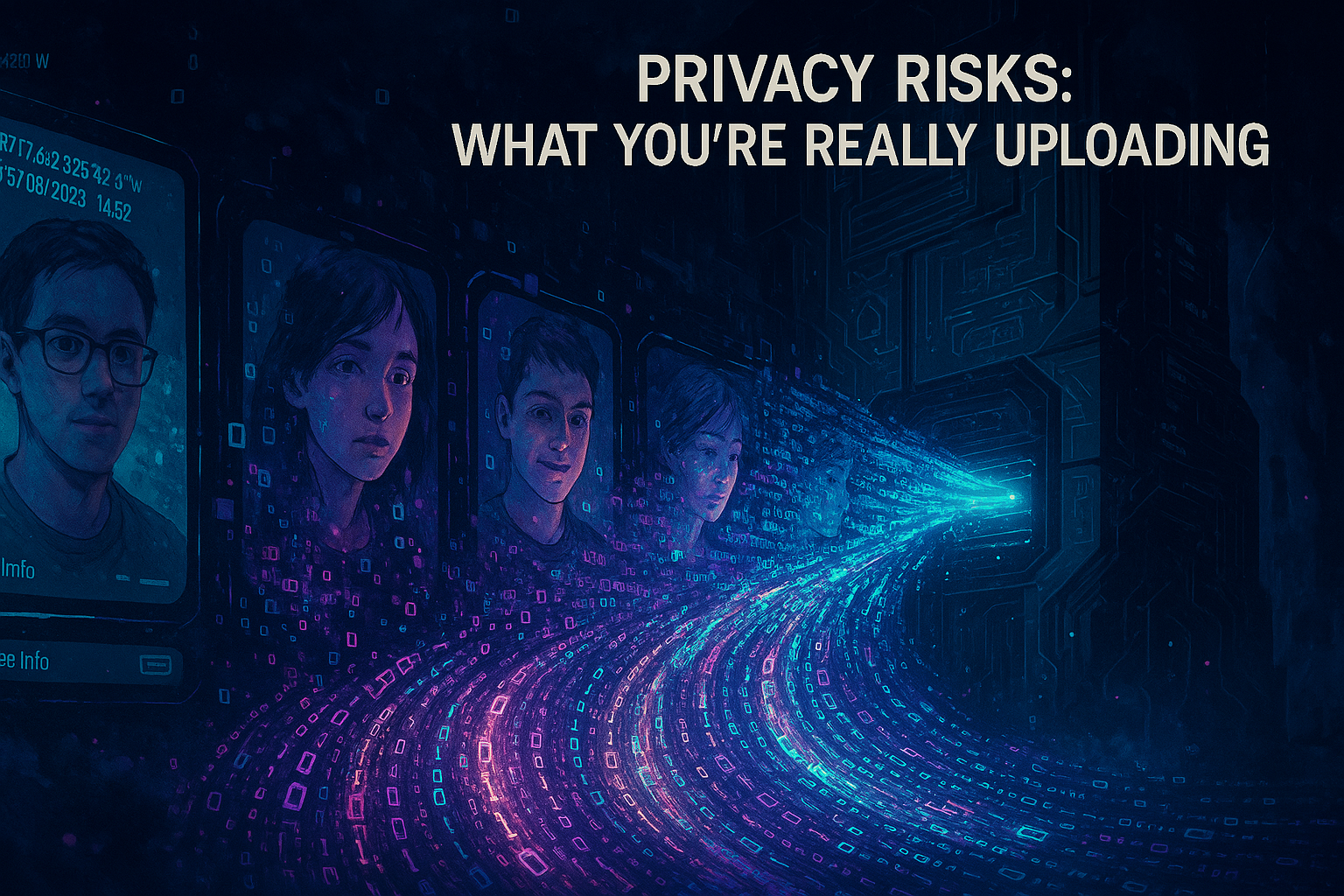
Behind the Filter
Experts warn that uploading photos exposes users to privacy breaches. Companies may:
Use images for AI model training without consent.
Extract metadata, including location and device details.
Retaining facial data, risking identity theft or deepfake misuse.
“If it’s free, you and your data are the product,” says Elle Farrell-Kingsley, a British futurist focused on AI ethics.
Proton’s privacy team adds, “Once uploaded, images are no longer entirely yours—they can feed AI models forever.”
GDPR Gray Zones and Consent Traps
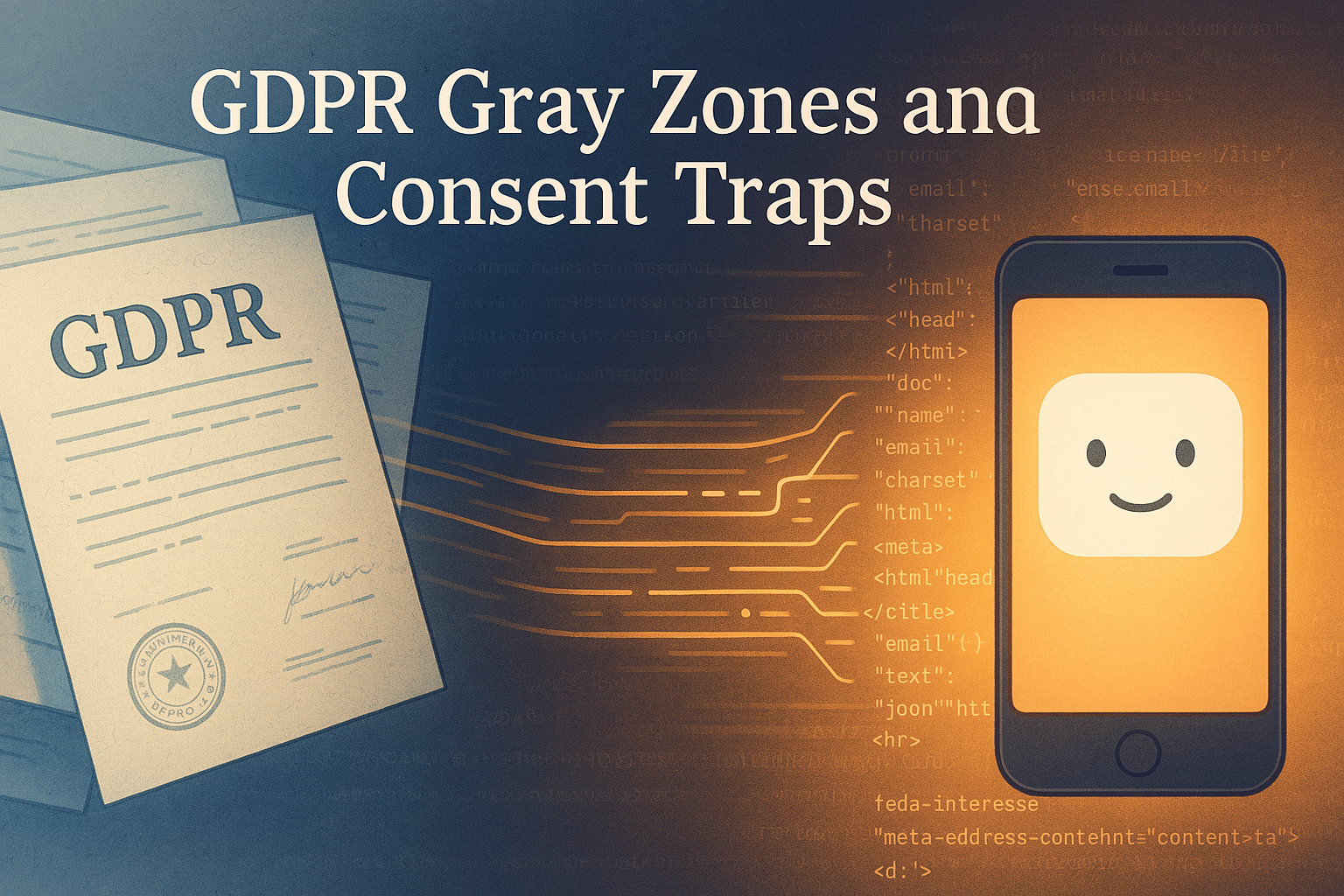
The Illusion of Control
While GDPR mandates consent, AI platforms exploit loopholes:
Users agree to broad data terms with a click.
Uploaded photos bypass the “legitimate interest” barrier.
AI platforms rarely disclose how long data is stored or if it's resold.
Luiza Jarovsky, co-founder of AI Tech Privacy, warns, “AI image generators can unintentionally collect data that complicates authentication, even faking documents or bills with scary ease.”
Real-World Dangers: Beyond Cute Filters
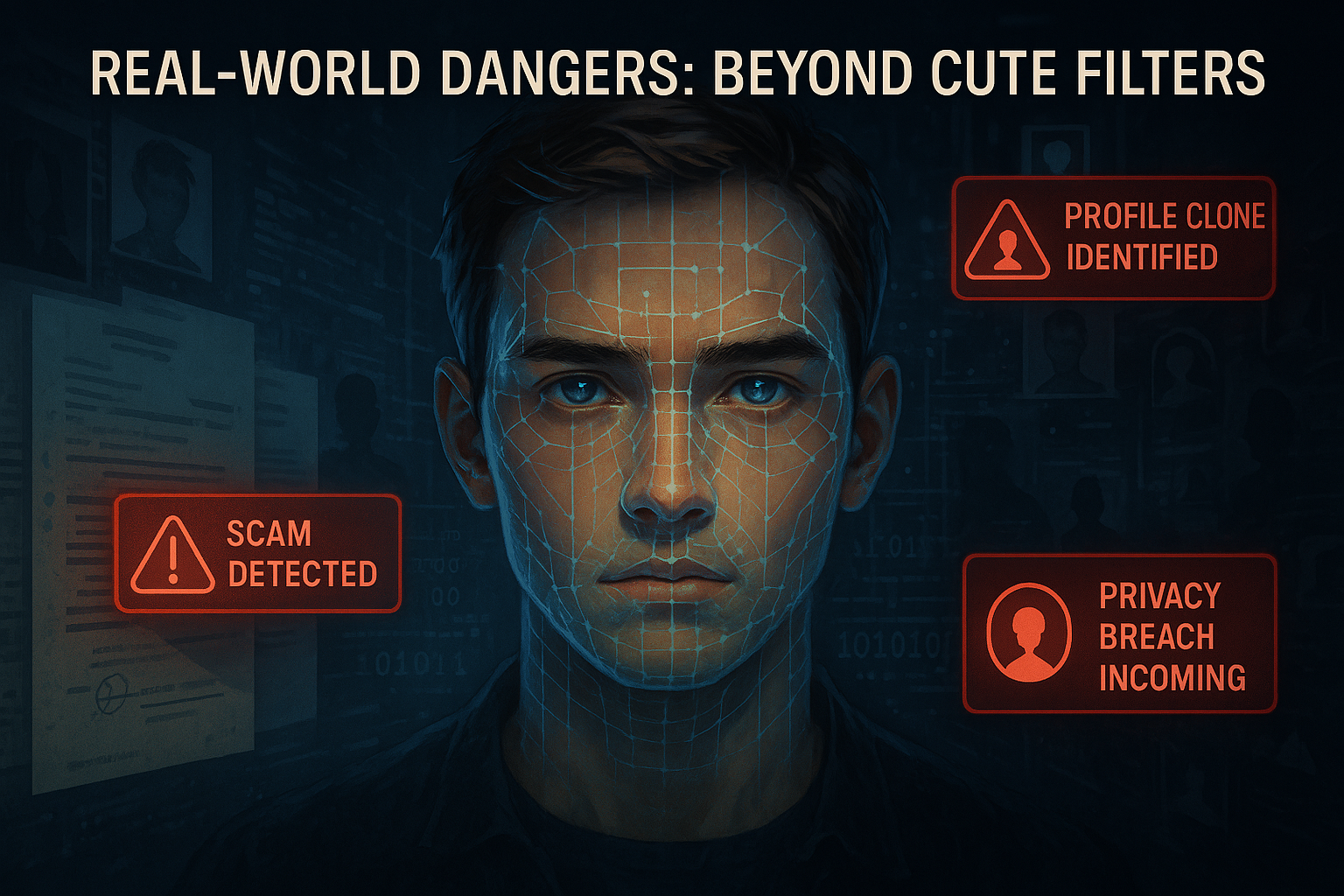
When AI Art Turns Harmful
Potential consequences include:
Identity theft via facial data.
Fake social media accounts using AI-enhanced images.
Harassment or defamation through modified content.
Legal trouble if images are repurposed or misused.
Data breaches and resale to brokers for profiling.
Platforms like Grok 3 admitted they might retain images unless users opt out. OpenAI hasn’t made a detailed statement, leaving users vulnerable.
Expert Insights
Elle Farrell-Kingsley, AI ethicist and futurist:
“Your face, your data—once uploaded, it can be anywhere. Metadata tells a story you didn’t mean to share.”Luiza Jarovsky, AI Tech Privacy:
“We’re entering a phase where AI-generated content could easily forge documents or impersonate you.”
Both emphasize the need for transparency, user education, and stronger regulations.
Conclusion
AI Ghibli's art dazzles, but it comes at a price. Behind the charm lies a system that may exploit personal data, erode privacy, and compromise identity. As generative AI continues to evolve, so too must our digital hygiene and awareness.
Takeaways:
Always read privacy policies before uploading images.
Avoid uploading children’s or sensitive personal photos.
Choose platforms with transparent, user-first data practices.
In a world where creativity and privacy collide, users must ask: Is the art worth the risk? Stay enchanted—but stay informed.
Further Reading:
How ChatGPT's Ghibli art image generator is raising privacy concerns
Studio Ghibli images made with ChatGPT look cute—but at a cost
Generative AI Security Risks and Best Practices – SentinelOne
Subscribe to my newsletter
Read articles from YuvaSec directly inside your inbox. Subscribe to the newsletter, and don't miss out.
Written by

YuvaSec
YuvaSec
Cybersecurity Enthusiast | Ex-Mechanical Engineer | Lifelong Learner Pivoting into InfoSec On a mission to build skills, break stuff (ethically), and land a job in cybersecurity.